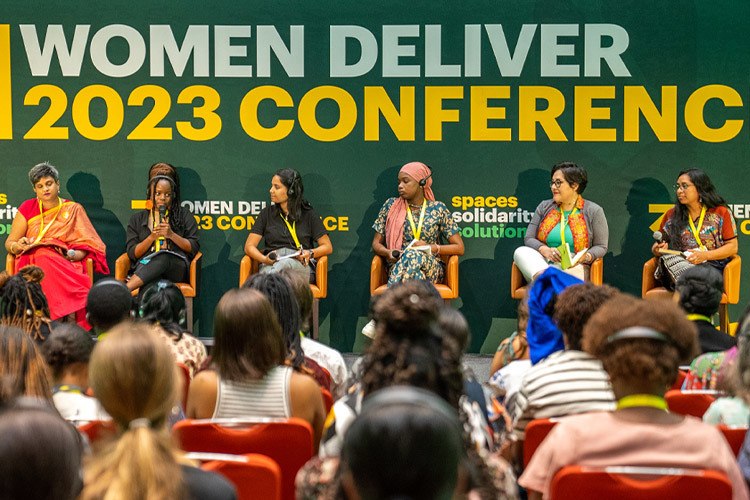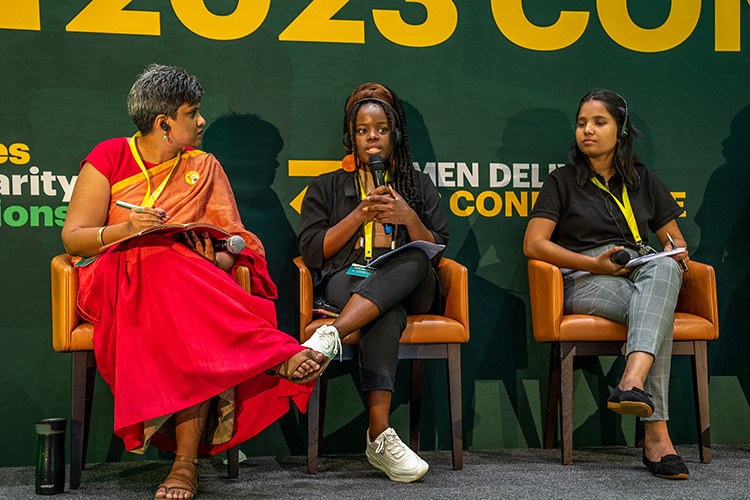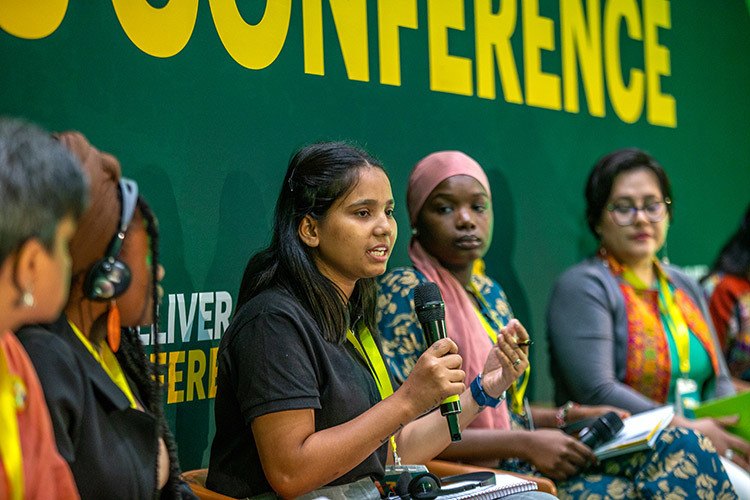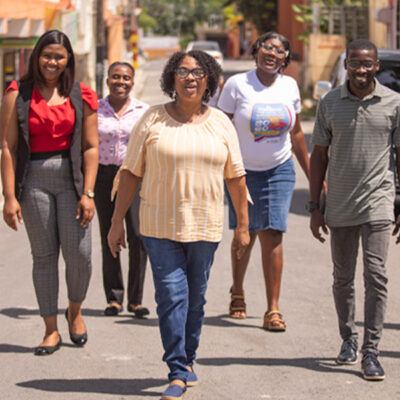
Feminist activists must overcome countless hurdles as they tackle gender inequality, racism, reproductive injustice and more. Access to flexible, long-term, unrestricted funding, however, shouldn’t be one of them. Grantmaking organizations like AJWS can be part of the solution, provided they value the insight of those working on the ground.
Last month, AJWS grantees from the Dominican Republic and India took this message to the Women Deliver conference in Kigali, Rwanda, where more than 6,000 grassroots activists, international nongovernmental organizations, United Nations agencies, philanthropies and governments met to discuss movement-building among women and girls around the world.
This year marked the first time the global conference was hosted by an African nation. Organizers said they chose Rwanda for the strides it has made in women’s rights – the World Economic Forum places Rwanda first among African nations in advancing gender equality.
The weeklong gathering drew such notable names as Ellen Johnson Sirleaf, the former president of Liberia and Nobel Peace prize laureate, Mary Robinson, the former President of Ireland and climate advocate, and Malala Yousafzai, Pakistani education activist and Nobel Peace prize laureate. But equally compelling were the voices of hundreds of feminists without global platforms who spoke of their day-to-day lives on the front lines of movement-building.
Among them were five young activists supported by AJWS, Girls First Fund and WomenStrong International who took the stage in a session entitled “Hey Funders: Here’s What Young Feminist Leaders Need from You!”
For activist Johanna Agustin Federico, safety and security are a major concern. She fights for racial and reproductive justice in the Dominican Republic and has received death threats for her work with Mujeres Sociopolíticas Mamá Tingó, a collective of social justice organizations and AJWS grantee.

“As Black activists, we have targets on our backs,” Johanna told the audience of more than 100 activists and funders. “Many donors provide specific funds for specific topics but there are no strategies on how to protect the defenders but we need flexible funding so we can make the changes we need in our own strategies while we do critical work.”
Rubi, an activist from India, spoke of her struggle to reconcile funders’ goals with the realities of her work at AJWS grantee Feminist Approach to Technology (FAT), a non-for-profit in New Delhi, that trains young women and girls in science, technology, engineering and math (STEM).

Young women and girls in India face numerous challenges, she said, from psychological and physical violence to gendered responsibilities around the home. Then, there are the natural hormonal changes that come with the journey to adulthood.
“When we work with girls, we try to address all these issues too. But what I’ve experienced is that funders will come to us and say, ‘Take this money and train “this many” girls to use the computer,’ but there is no recognition that there are challenges in the background that might prevent them from even getting the training,” Rubi said.
Unrealistic timelines and cumbersome grantmaking policies also hamper the work that young feminist leaders are doing in their communities.
“Agencies like to set deadlines to obtain results from a project,” Johanna said, “but sometimes you need more time than one or two years.”
Rubi added that FAT is a growing grassroots organization led by young women and girls. They don’t have the training or capacity to write up lengthy grant proposals.
“The complicated processes we have to follow make it very difficult to share what we actually want to do,” she said, as several audience members nodded in agreement.
During the second half of the session, leaders from AJWS, Girls First Fund, and WomenStrong International shared best practices learned from years as feminist grant makers. They noted that the anti-rights movement is well-organized and well-funded thanks to long-term, flexible, unrestricted funding – exactly what feminist grassroots organizations need.
It’s time to rethink the power dynamic between donor and grantee, said Sarah Green, AJWS’s senior policy advisor for sexual health and rights.
“Part of the issue is we have so many global frameworks now – like the Sustainable Development Goals – and that’s really been good to focus and rally us on a lot of issues,” she said. “But I think that’s made a lot of large global North organizations with a lot of money feel that they have to solve the problems and they fail to recognize that the work is already happening on the ground. “As funders,” she concluded, “we need to flip the way we see this work and how we see ourselves in it.”




